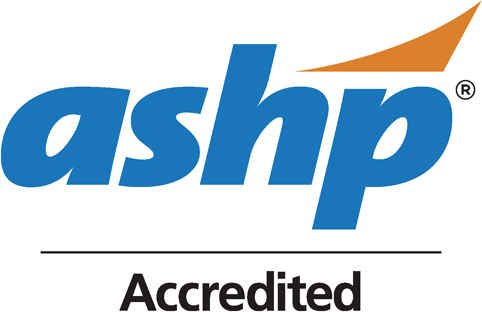PGY2 Oncology Pharmacy Residency
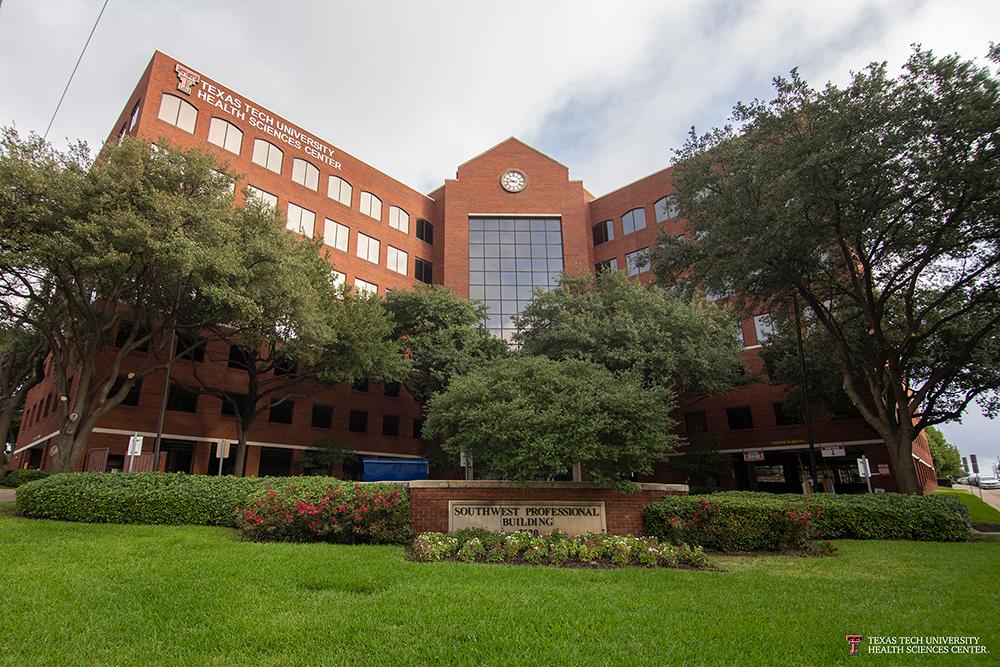
The PGY2 Oncology Pharmacy Residency conducted by TTUHSC Jerry H. Hodge School of Pharmacy, Dallas, Texas is accredited by ASHP.
Purpose
PGY2 pharmacy residency programs build on Doctor of Pharmacy (Pharm.D.) education and PGY1 pharmacy residency programs to contribute to the development of clinical pharmacists in specialized areas of practice. PGY2 residencies provide residents with opportunities to function independently as practitioners by conceptualizing and integrating accumulated experience and knowledge and incorporating both into the provision of patient care or other advanced practice settings. Residents who successfully complete an accredited PGY2 pharmacy residency are prepared for advanced patient care, academic, or other specialized positions, along with board certification, if available.
Description
The PGY2 specialty residency in Oncology Pharmacy Practice at Texas Tech University Health Sciences Center School of Pharmacy Dallas/Ft. Worth Regional Campus, in conjunction with UT Southwestern Medical Center, is designed to produce practitioners who exhibit excellence in the pharmaceutical care of hematology/oncology patients. An oncology clinical specialist should possess a mastery of clinical skills needed to practice in a wide range of patient care settings and a solid knowledge base in oncology pharmacotherapy.
The residency provides the environment necessary to obtain the knowledge and skills needed to care for patients with a wide range of disease states. Core disease state experiences within this residency include lung, breast, prostate, colorectal cancer, leukemia, lymphoma, and bone marrow transplant among other malignancies. The resident may choose electives based on their career goals. In addition to patient care responsibilities, the resident will be involved in teaching activities, including didactic teaching, problem-based learning facilitation and precepting experiential clerkship students, as well as a residency research project. The program will foster the development of an independent and versatile practitioner and is designed to produce well rounded, independent professionals through interrelated experiences in teaching, research, and professional activities.
Practice Excellence
- Develop an expert level knowledge base in oncology pharmacotherapy
- Develop solid patient care skills in the inpatient and outpatient settings
- Should achieve excellence in core oncology disease states
- Develop a sound understanding of pharmacy practice management
- Establish one’s self as an integral member of a health care team
Scholastic Excellence
- Demonstrate proficiency in teaching in both didactic and small group learning environments
- Develop effective precepting skills
- Generate new knowledge in oncology pharmacotherapy
- Interpret and disseminate knowledge in oncology pharmacotherapy
Individual Excellence
- Develop and improve upon a system of self-assessment skills
- Demonstrate exemplary verbal and written communication skills
- Utilize a system for balancing multiple work-related and personal responsibilities
- Understand the importance of professionalism through participation in pharmacy
For additional information, please refer to the ASHP PGY2 Oncology Pharmacy Residency Education Goals and Objectives.
The residency experiences are divided into month long blocks. The resident is required to take all of the required rotations throughout the year with the option to integrate the elective rotations throughout the residency based on the resident’s interest. All required rotations are within UT Southwestern Medical Group at either Clements University Hospital or the Simmons Comprehensive Cancer Center. Addition elective rotations may be offered at Children’s Medical center and the North Texas VA Health Care System.
Required Rotations (All 4 weeks unless otherwise specified)
- Inpatient Medical Oncology (6 Weeks)
- Inpatient Heme Malignancies I
- Inpatient Heme Malignancies II
- Outpatient BMT I
- Outpatient BMT II
- Outpatient Breast Cancer (3 weeks)
- Outpatient Solid Oncology I
- Outpatient Solid Oncology II
- Outpatient Investigational Drug Service
Elective Rotations
- Infectious Disease (pharmacist/physician precepted)
- Others by request – as able to provide
Longitudinal Rotations
- Resident Research Project
- Oncology Pharmacy Administration
- Academia
- Cancer Center Staffing
Residents are appointed as Assistant Instructors with Texas Tech University Health Sciences Center (TTUHSC) School of Pharmacy (SOP). Teaching activities for residents are designed to complement practice activities while allowing the resident to experience a variety of teaching methods. Residents will be required to demonstrate skills necessary to function in an academic setting by completing the following activities:
Didactic Teaching
Two hours of formal didactic lectures within the school of pharmacy programs will
be required. The courses that are to be taught will be based on availability and resident
interest.
Problem-Based Learning
Involvement as a group facilitator in the small group, problem-based learning, courses
is required for residents. The purpose of this course series is to provide specific
opportunities for students to apply knowledge from the classroom setting in a hands-on
environment. The Clinical Correlations courses allow for reinforcement of foundational
concepts, integration of knowledge and skills from multiple courses in relation to
the practice of pharmacy, and demonstration of individual student mastery of core
objectives. The course focuses on practical application of concepts in science and
the practice of pharmacy within an integrated, applied, small-group learning environment.
It also emphasizes the relationships between therapeutics, medication safety, pharmacy
operations. Key foundational concepts in science and the practice of pharmacy are
also reinforced in the context of advanced scenarios. The facilitator's role is not
to teach the students, but rather to facilitate their discussion. During the semester,
this course meets twice a week for two hours. Residents may be scheduled up to 16
sessions per semester.
Experiential Teaching
Clerkship teaching, involving both P3 and P4 student pharmacists, is integrated into
the resident practice model. Early in the program, the resident will observe faculty
clerkship preceptors and become integrated into various aspects of clerkship teaching.
During the residency program, residents will independently precept clerkship students
for a minimum of 1 six week rotation block.
Clinician-Educator Residency Certificate Program
The Clinician Educator Training Program is a program to provide training for TTUHSC
affiliated PGY1 and PGY2 residents who are interested in developing their academic
skills. The primary goal of the training program is to supplement a strong clinical
background with the skills needed to become a successful educator. The learning objectives
for this program are to develop a personalized teaching philosophy, create evaluable
learning objectives and corresponding exam questions for a formal lecture, evaluate
students fairly, and to discuss effective teaching methodologies for a given scenario.
The program includes didactic and web-based teaching models, mentored facilitator
training for small group problem-based learning, and precepting of third and/or fourth-year
student pharmacists. Residents also receive instruction in grant-writing, biostatistics,
and clinical trial design; submit a project proposal to the institutional review board;
and collect, interpret, and publish their results. Additional activities are provided
to enhance discovery, integration, and writing skills. The program also includes innovative
discussion topics based on needs previously identified by new faculty members. While
the program targets residents with an interest in academia, the skill sets gained
through the Clinician-Educator Training Program are applicable to a broad range of
career opportunities. For PGY-2 residents, completion of this certificate is optional
following the completion of an ASHP accredited Teaching Certificate program as a PGY-1
Resident.
Residency Research Project
Residency Project: Residents will complete one research project per year. Residents
may choose any type of research project or quality improvement program, provided that
the project:
- includes generation of original data;
- is suitable for publication or presentation at a national pharmacy meeting;
- can reasonably be completed within the residency year.
Medication-use Evaluation
Residents are required to complete at least one medication-use evaluation during the
residency year.
Manuscript Preparation
Residents are required to submit one manuscript per year for publication in a refereed
journal.
Presentation of Research Project
Residents will present their research project at a national meeting during the second
half of the residency year that is focused on the education of oncology providers.
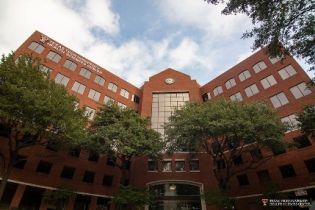 The Texas Tech School of Pharmacy was established by the Texas Legislature in 1993
and is part of the Texas Tech University Health Sciences Center. The Texas Tech University
Health Sciences Center School of Pharmacy graduated its first class in May 2000. The
Texas Tech School of Pharmacy is the first publicly funded pharmacy school to be built
in the US in 40 years. Founded upon the idealism that tomorrow's pharmacists must
be independent thinking and technologically advanced, all education and training utilizes
problem-based learning techniques with a strong emphasis on computer literacy. All
course materials are maintained on the School's World Wide Web servers. The main campus
for the school of pharmacy is located in Amarillo, with regional campuses in Dallas/Ft
Worth, Lubbock and Abilene, Texas. The Dallas/Fort-Worth Regional campus was established
in 1999, & has two sites, one resides on the Dallas Veterans Affairs Medical Center
campus and the other is within the central Dallas Medical District. Residents are
actively involved in didactic and clinical teaching and helping facilitate Pharm.D.
students in acquiring problem-based learning skills.
The Texas Tech School of Pharmacy was established by the Texas Legislature in 1993
and is part of the Texas Tech University Health Sciences Center. The Texas Tech University
Health Sciences Center School of Pharmacy graduated its first class in May 2000. The
Texas Tech School of Pharmacy is the first publicly funded pharmacy school to be built
in the US in 40 years. Founded upon the idealism that tomorrow's pharmacists must
be independent thinking and technologically advanced, all education and training utilizes
problem-based learning techniques with a strong emphasis on computer literacy. All
course materials are maintained on the School's World Wide Web servers. The main campus
for the school of pharmacy is located in Amarillo, with regional campuses in Dallas/Ft
Worth, Lubbock and Abilene, Texas. The Dallas/Fort-Worth Regional campus was established
in 1999, & has two sites, one resides on the Dallas Veterans Affairs Medical Center
campus and the other is within the central Dallas Medical District. Residents are
actively involved in didactic and clinical teaching and helping facilitate Pharm.D.
students in acquiring problem-based learning skills.
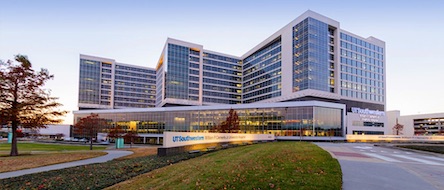 For the fifth consecutive year, Southwestern’s William P. Clements Jr. University
Hospital has been named the number 1 hospital in the DFW area by U.S. News & World
Report. With the completion of its third 12-story tower, the facility now boasts 751
beds committed to serving our patients and their families in the metroplex and across
Texas. Best practices gathered from the nation’s top clinical facilities are incorporated
in the design of the new hospital and fully integrate UT Southwestern’s patient care,
education, and research missions – elements that make an academic medical center unique
among health care providers.
For the fifth consecutive year, Southwestern’s William P. Clements Jr. University
Hospital has been named the number 1 hospital in the DFW area by U.S. News & World
Report. With the completion of its third 12-story tower, the facility now boasts 751
beds committed to serving our patients and their families in the metroplex and across
Texas. Best practices gathered from the nation’s top clinical facilities are incorporated
in the design of the new hospital and fully integrate UT Southwestern’s patient care,
education, and research missions – elements that make an academic medical center unique
among health care providers.
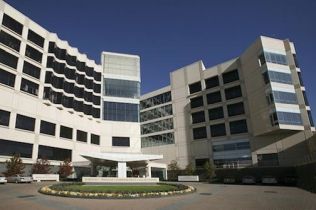 As the region’s only National Cancer Institute-designated cancer center, UT Southwestern’s
Simmons Cancer Center offers a level of care and access to innovative treatments that
are unsurpassed in North Texas. But we’re not content with simply offering the latest
advances in cancer care. Our active research program seeks to uncover the newest scientific
discoveries in cancer and bring them to our patients. They offer 13 major cancer care
programs. The focus is treating the whole patient while we fight the cancer. In addition
to patient care and research, the education and training programs support and develop
the next generation of cancer researchers and clinicians. In addition to the recent
expansion of Clements University Hospital, ground has been broken on a brand new cancer
center, projected opening in 2022.
As the region’s only National Cancer Institute-designated cancer center, UT Southwestern’s
Simmons Cancer Center offers a level of care and access to innovative treatments that
are unsurpassed in North Texas. But we’re not content with simply offering the latest
advances in cancer care. Our active research program seeks to uncover the newest scientific
discoveries in cancer and bring them to our patients. They offer 13 major cancer care
programs. The focus is treating the whole patient while we fight the cancer. In addition
to patient care and research, the education and training programs support and develop
the next generation of cancer researchers and clinicians. In addition to the recent
expansion of Clements University Hospital, ground has been broken on a brand new cancer
center, projected opening in 2022.
 |
Chris Selby, Pharm.D., BCOP Dr. Selby is an Assistant Professor in the Pharmacy Practice Department with the Texas Tech Health Science Center (TTUHSC) – School of Pharmacy. He graduated from Southern Illinois University Edwardsville – School of Pharmacy in 2014. This was followed by a PGY-1 pharmacy practice residency in Shreveport, Louisiana at University Health and a PGY-2 specialty residency in Oncology at University of Colorado Skaggs School of Pharmacy and Pharmaceutical Sciences in Denver, Colorado. After completing residency, Dr. Selby returned to Shreveport as an inpatient clinical pharmacist, helping to cover both medical oncology and bone marrow transplant patients. Currently, Dr. Selby teaches in the Pharmacotherapy VII – Oncology, Pain, and Palliative Care, as well as, the Advanced Oncology. He is also an active member of American Society of Health-Systems Pharmacists (ASHP) and Hematology/Oncology Pharmacists Association (HOPA). |
| Preceptors | |
 |
Stefanie Conley, Pharm.D., BCOP Over the course of her career, she has actively participated in studies sponsored by the National Cancer Institute, Eastern Cooperative Oncology Group (ECOG), Southwestern Oncology Group (SWOG), NRG Oncology, Alliance and industry sponsored cancer trials as well as phase I trials. Stefanie is currently a member of the ECOG-ACRIN cooperative group, the ECOG-ACRIN pharmacy steering committee, and the Hematology Oncology Pharmacy Association (HOPA). She is a preceptor for the Investigational Drug Service rotation for the PGY2 Oncology Specialty Residency program and PGY1 residency program and serves as a preceptor for pharmacy students. |
 |
Bryan Denbow, Pharm.D. |
 |
Ashley Jones, Pharm.D., BCOP |
 |
Kailee Gaines, Pharm.D. BCOP |
 |
Christine Hong, Pharm.D., MBA |
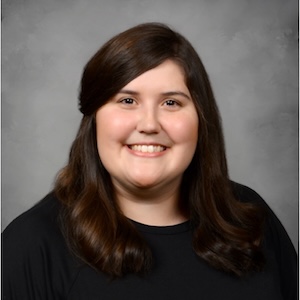 |
Katherine Hill, Pharm.D. |
 |
Rochelle Horadam, RPh. BCOP |
 |
Shraddha Kansagra, Pharm.D., BCOP |
 |
Megan Ouldhouse, RPh., BCOP |
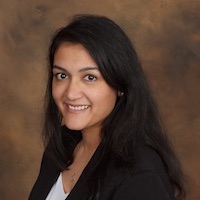 |
Hetalkumari Patel, Pharm D, BCOP |
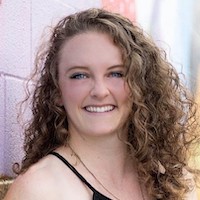 |
Katy Rascón, Pharm.D. |
 |
Alicia Yn, Pharm.D. BCOP |
Resident positions available: 1
Application deadline: January 3, 2024
NMS Code: 698260
Starting date: July 1, 2024
Program length: 12 months
Estimated annual salary: $49,000
Benefits:
Health insurance coverage, dental coverage (additional fee) and retirement benefits.
12 days of vacation leave, 10 days of professional leave and 12 days of sick leave.
Travel funds or compensation for Professional Meetings.
Requirements:
Residency applicants must have a Pharm.D. degree, be eligible for licensure in Texas,
and be eligible for employment at Texas Tech University HSC Jerry H. Hodge School
of Pharmacy. Completion of an ASHP accredited PGY1 residency is also required.
How to apply:
All Texas Tech University Health Sciences Center Jerry H. Hodge School of Pharmacy
affiliated residency programs are participating in the Pharmacy Online Residency Centralized
Application Service (PhORCAS). More information on PhORCAS can be found on the ASHP-PhORCAS webpage.
The components of the application include:
- Curriculum Vitae (CV)
- Letter of intent (describe your interest in the residency program and your professional goals and objectives)
- Three (3) letters of recommendation forms (located in PhORCAS)
- Official transcripts from all pharmacy education
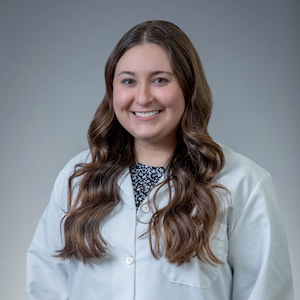 |
Molly Crosley, Pharm.D. PGY2 Oncology Pharmacy Resident Email: Margaret.Crosley@ttuhsc.edu Residency Program: About Molly: Professional interests: Personal interests outside of the residency program: |
 |
2022-2023
|
 |
2021-2022
|
 |
2020-2021
|
 |
2019-2020
|
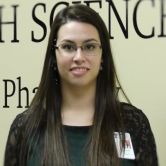 |
2017-2018
|
 |
Katherine Kelly, Pharm.D. |
 |
2014-2015
|
|
Chris Selby, Pharm.D., BCOP 5920 Forest Park Road, Suite 500 |

